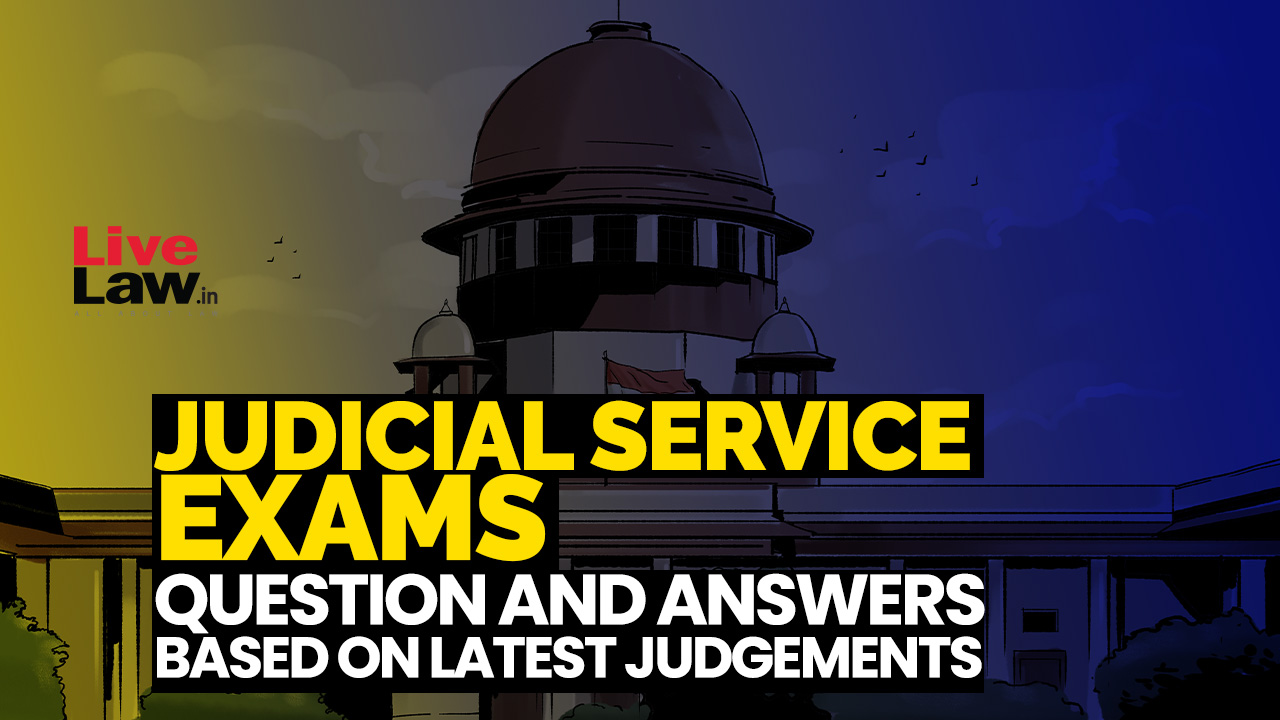Judicial Service Exams: Question (MCQs) Based On Latest Judgements With Explanatory Answers
Paras Ahuja
6 Dec 2022 5:04 PM IST

Next Story
6 Dec 2022 5:04 PM IST
Q1. Which of the following contentious issues was decided by the SC in its decision in Neil Aurelio Nunes and Ors v. Union of India & Ors? a) Constitutional Validity of reservations for OBCs at NEET-UG level b) Constitutional Validity of reservations for OBCs at NEET-PG level c) Constitutional Validity of reservations for SCs at NEET-PG level d) None of the...
